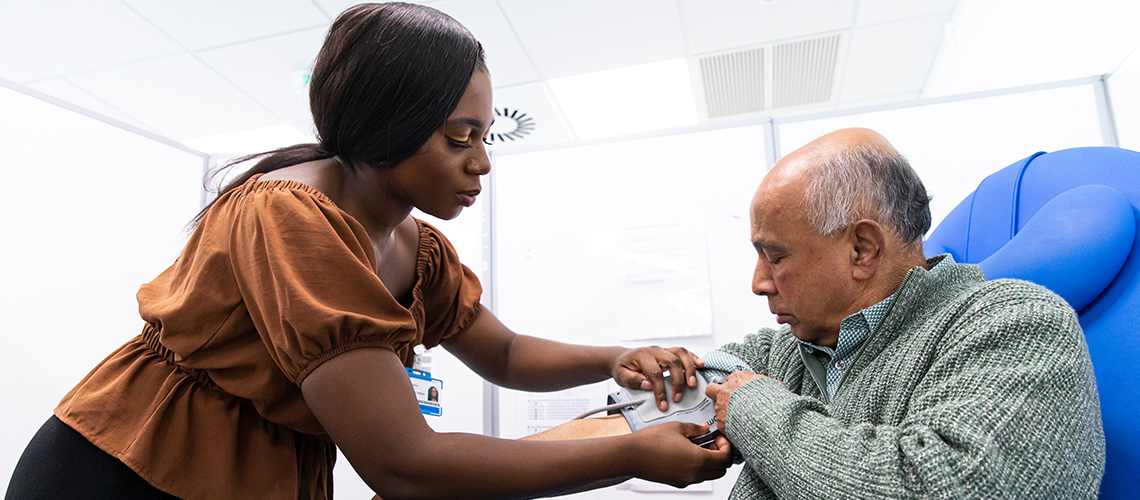
Health and care research plays an important role in all our lives. It seeks to find answers about the best options to improve health and care for all of us. It is key to finding new and better ways of preventing, diagnosing, and treating disease and other health conditions.
What getting involved in research helps to achieve
Health and care research enables health professionals to find answers to important questions.
By getting involved in research, you’ll be helping make new discoveries which could one day save lives.
Health and care research allows us to:
- diagnose diseases earlier or more accurately
- provide life-changing treatments
- prevent people from developing conditions
- improve health and care for generations to come
- ensure everyone has a better quality of life
The different types of health and care research
Health research
Sometimes health research studies may be referred to as ‘clinical trials’.
They usually compare the effects of a treatment with another to see which works best. They may involve patients (people with particular health conditions), people who are unaffected by the condition, or both.
Health research can also involve research on samples of blood or other tissues, or tests such as scans or x-rays. Researchers can also analyse information in patient records, or the data from health and lifestyle surveys.
Public health research
Public health research tackles some of the bigger health issues that affect society as a whole. For example, the impact of eating less junk food or how many steps a day are needed for good health. It also looks at the benefits, costs, acceptability and wider impact of treatments.
You can learn more by listening to our public health research podcast.
Social care research
Social care research is about improving the lives of people who receive care and support from social care services. It focuses on the evidence needed to improve people’s wellbeing and independence, protect human rights and promote equality.
Studies could be about exploring the impact of new technology in care environments. Or changing social care policies and practice.
Watch the video below to learn more about the different types of research you can take part in. Read the video transcript for different ways to take part in health and care research.
Explaining common myths about research
We want you to understand all the facts before deciding to take part in research. On our myths about research page, we correct some common misconceptions about health and care research.
Why health and care research matters
Learn more about why taking part in research matters and how your participation helps support the NHS.
The history and key achievements of health and care research
You can learn about the impact health and care research has already had on so many people’s lives by reading our history of research blog post.
We look at the first clinical trial and research’s role in the discovery of the first contraceptive pill, penicillin and aspirin.
Interested in learning more about research?
There are some key pages across this site which can help you understand more about health and care research.
Visit the links below to find out how we’re regulated, common questions, and our glossary for research jargon so that everything is easy to understand.





